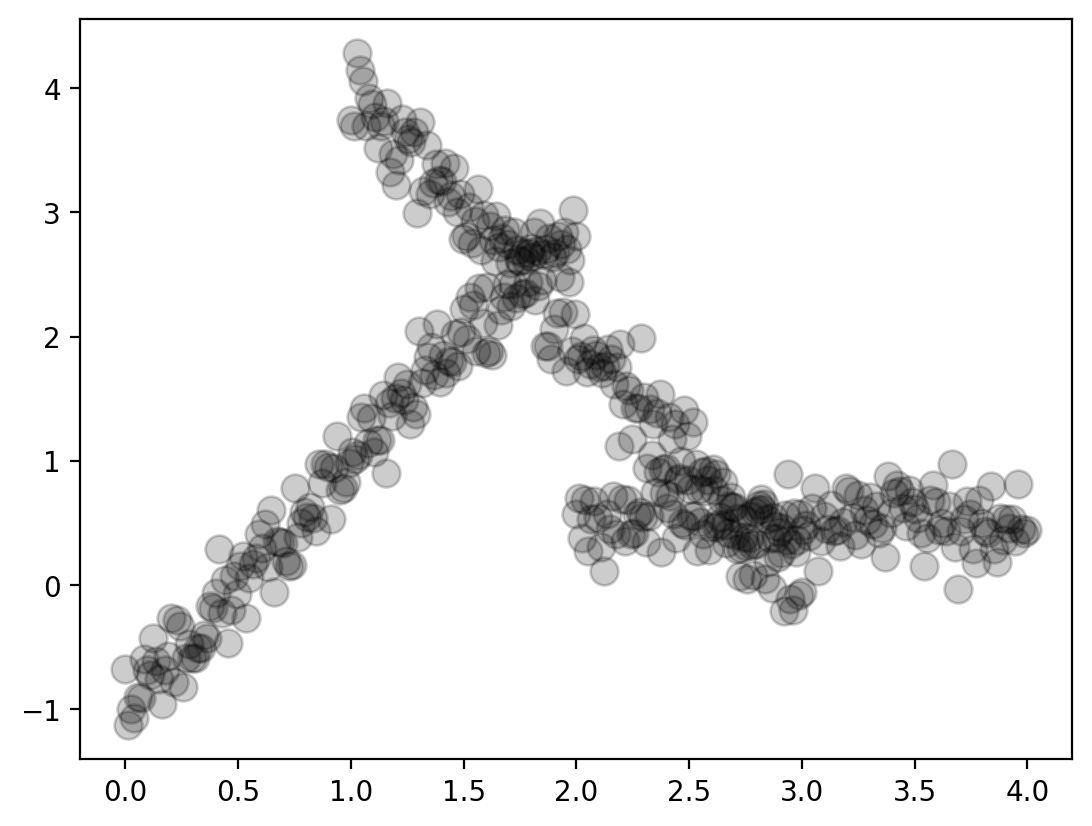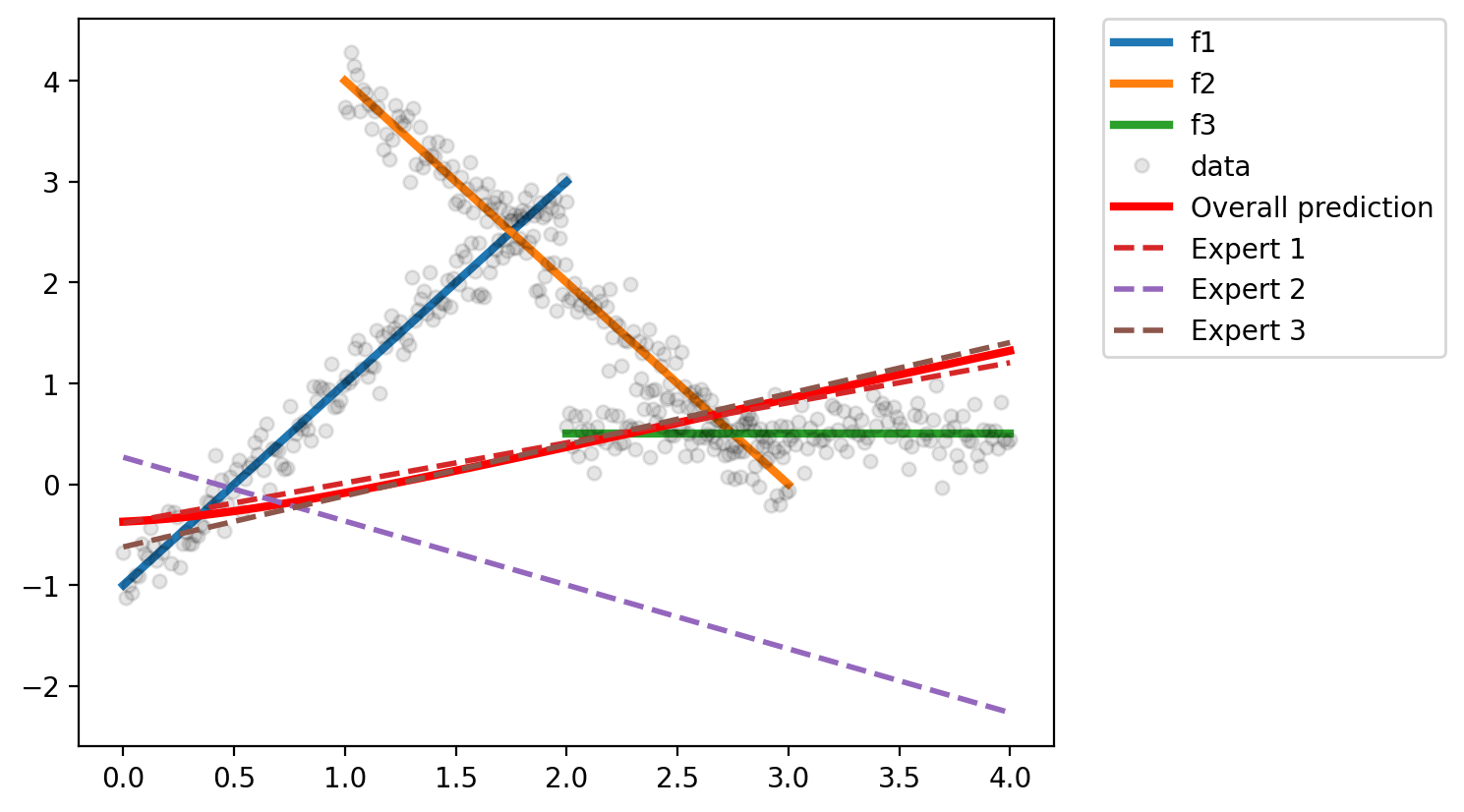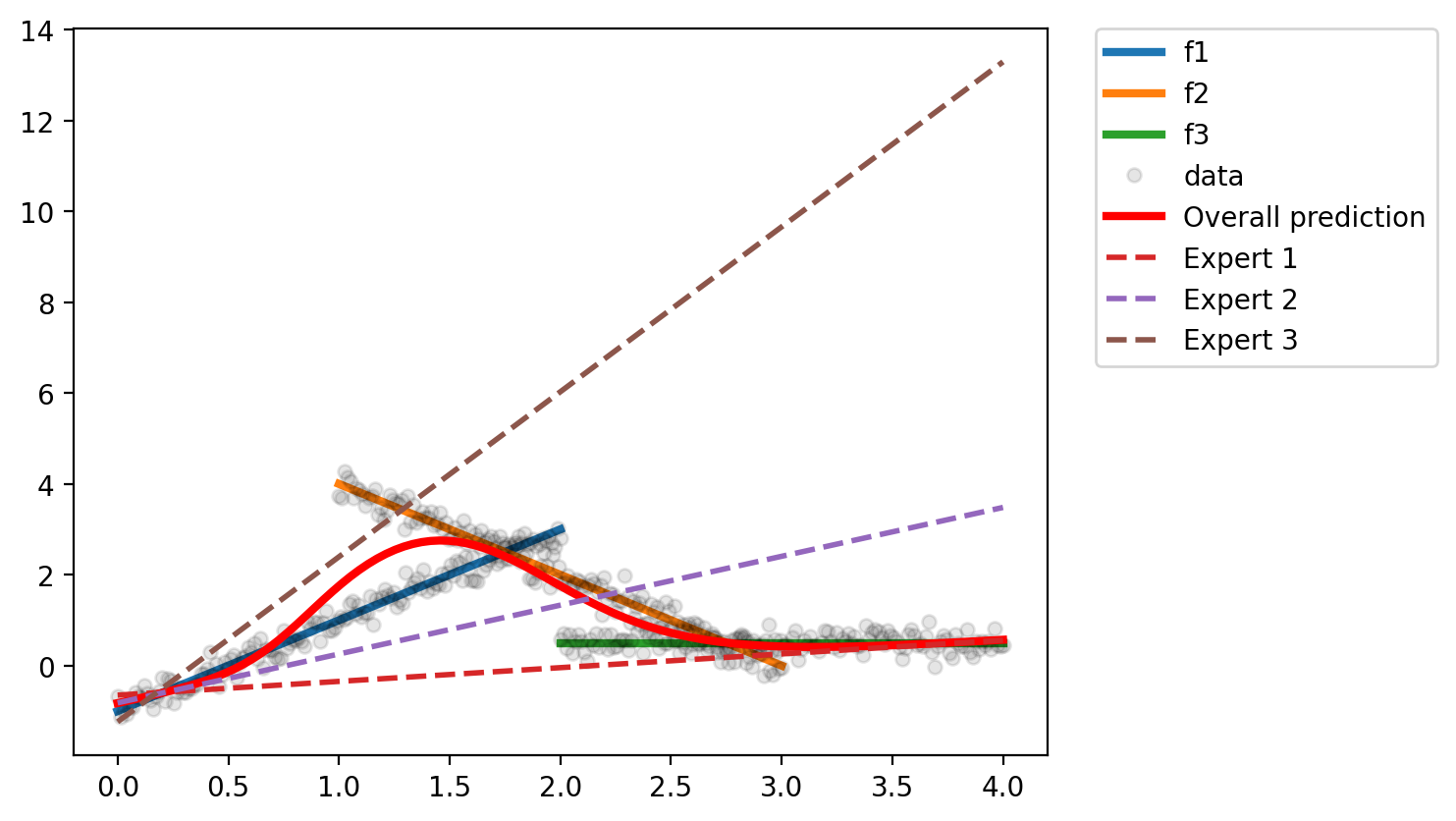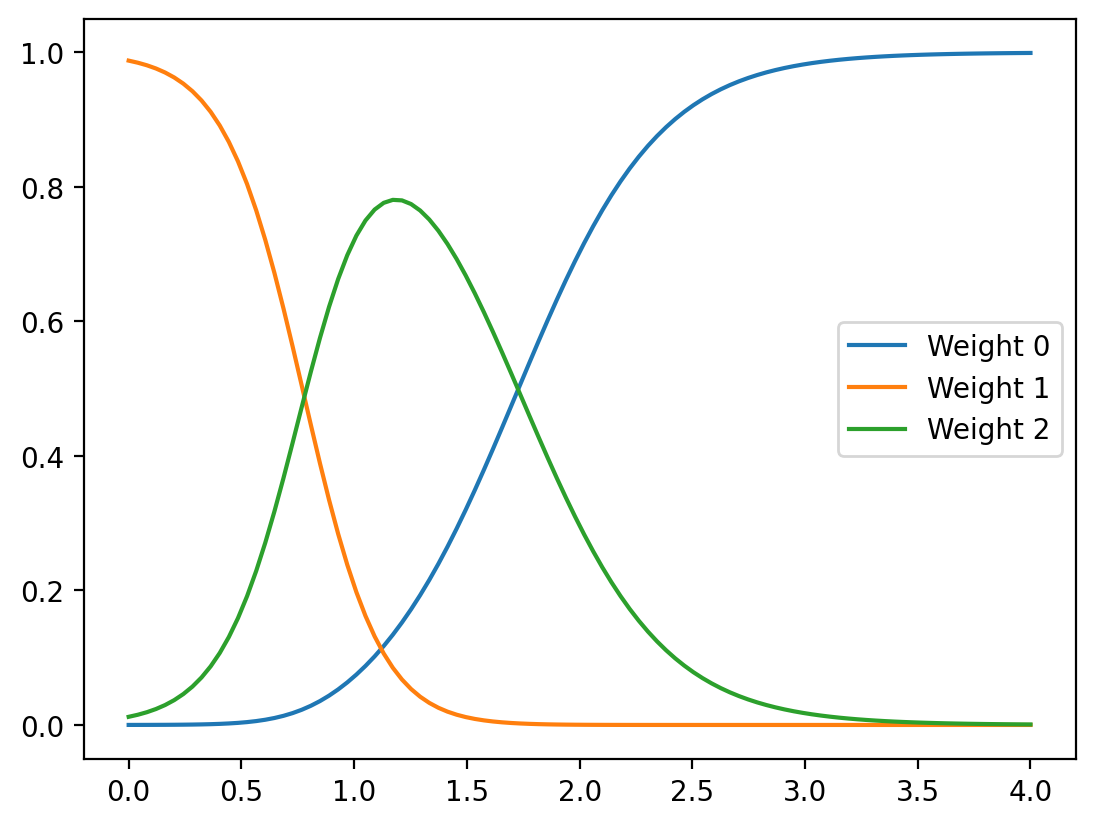import numpy as np
import matplotlib.pyplot as plt
%matplotlib inline
%config InlineBackend.figure_format = 'retina'
import torch
import torch.nn as nn
import torch.nn.functional as F
from einops import rearrange, reduce, repeat# Create "S" shaped data
x_region1 = torch.linspace(0, 2, 150)
x_region2 = torch.linspace(1, 3, 150)
x_region3 = torch.linspace(2, 4, 150)
f1 = lambda x: 2*x - 1
f2 = lambda x: -2*x + 6
f3 = lambda x: torch.tensor([0.5]*len(x))
f1_x = f1(x_region1)
f2_x = f2(x_region2)
f3_x = f3(x_region3)
x_total = torch.cat([x_region1, x_region2, x_region3])
f_total = torch.cat([f1_x, f2_x, f3_x])
y_total = f_total + torch.randn_like(f_total)*0.2plt.plot(x_total, y_total, 'o', ms=10, c='k', alpha=0.2)
class Linear(nn.Module):
def __init__(self, input_dim, output_dim):
super().__init__()
self.linear = nn.Linear(input_dim, output_dim)
def forward(self, x):
return self.linear(x)e1 = Linear(1, 1)
e2 = Linear(1, 1)
e3 = Linear(1, 1)class Gating(nn.Module):
def __init__(self, input_dim, output_dim):
super().__init__()
self.linear = torch.nn.Linear(input_dim, output_dim)
def forward(self, x):
pred = F.softmax(self.linear(x), dim=1)
return pred
g = Gating(1, 3)x_test = torch.linspace(0, 4, 100).view(-1, 1)
weights = g(x_test)
print(weights.shape)torch.Size([100, 3])predictions = torch.cat([e1(x_test), e2(x_test), e3(x_test)], dim=1)
print(predictions.shape)torch.Size([100, 3])overall_prediction = torch.sum(weights*predictions, dim=1)
print(overall_prediction.shape)torch.Size([100])def predict(g, e1, e2, e3, x):
weights = g(x)
predictions = torch.cat([e1(x),
e2(x),
e3(x)], dim=1)
overall_prediction = torch.sum(weights*predictions, dim=1)
return overall_predictiondef plot(g, e1, e2, e3, x_test):
y_hat = predict(g, e1, e2, e3, x_test).detach().numpy()
plt.plot(x_region1, f1_x, lw=3, label='f1')
plt.plot(x_region2, f2_x, lw=3, label='f2')
plt.plot(x_region3, f3_x, lw=3, label='f3')
plt.plot(x_total, y_total, 'o', ms=5, c='k', alpha=0.1, label='data')
plt.plot(x_test, y_hat, 'r', lw=3, label='Overall prediction')
# prediction of each expert
y_hat_e1 = e1(x_test).detach().numpy()
y_hat_e2 = e2(x_test).detach().numpy()
y_hat_e3 = e3(x_test).detach().numpy()
plt.plot(x_test, y_hat_e1, '--', lw=2, label='Expert 1')
plt.plot(x_test, y_hat_e2, '--', lw=2, label='Expert 2')
plt.plot(x_test, y_hat_e3, '--', lw=2, label='Expert 3')
# legend outside the plot
plt.legend(bbox_to_anchor=(1.05, 1), loc='upper left', borderaxespad=0.)plot(g, e1, e2, e3, x_test)
optimizer = torch.optim.Adam(list(e1.parameters()) +
list(e2.parameters()) +
list(e3.parameters()) +
list(g.parameters()), lr=0.01)
for i in range(5000):
optimizer.zero_grad()
loss = torch.mean((y_total - predict(g, e1, e2, e3, x_total.view(-1, 1)))**2)
loss.backward()
optimizer.step()
if i % 500 == 0:
print(loss.item())2.34350848197937
0.3760591149330139
0.34844234585762024
0.3476337492465973
0.34751665592193604
0.34749242663383484
0.34747281670570374
0.34743985533714294
0.347318172454834
0.33742383122444153plot(g, e1, e2, e3, x_test)
weights = g(x_test).detach().numpy()
for i in range(3):
plt.plot(x_test, weights[:, i], label=f'Weight {i}')
plt.legend()